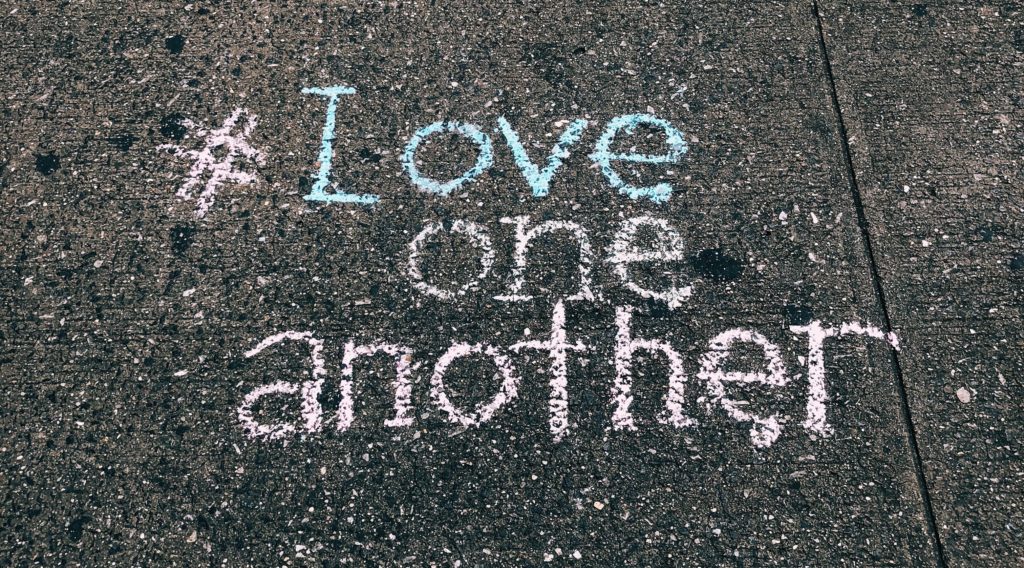Recently, a dear friend sent me a musical version of the lovingkindness meditation that she had recorded for her church. It was so haunting and lyrical that I have been singing it to myself, several times a day, ever since. It was something that I wanted to share, but was not sure how best to do so. Should I include it in the Valentine’s post? Should I include it in a meditation one? In the end, I decided to showcase it all by itself.

What is lovingkindness?
This blended word is one that is used freely by myself and others, but to be honest, I was not sure of its roots. It simply seemed wholesome and ideal. So I looked it up. According to The Buddhist Centre, the lovingkindness meditation is a translation of metta bhavana. Metta means love, in the non-romantic sense, in the Pali language. And what is Pali? It is the language in which the surviving Buddhist scriptures are written. It is not a living language, but rather a literary/liturgical one. Bhavana means ‘development or cultivation’. So, lovingkindness meditation is all about learning to develop a feeling of love and kindness both towards yourself and others.

Five steps to developing lovingkindess
Traditionally, the meditation follows five steps with each taking about five minutes to complete. For a more detailed explanation, please check out: https://thebuddhistcentre.com/text/loving-kindness-meditation. I’ve given an an abbreviated one here:
Step one: Focus on yourself in a positive way. Allow a sense of lovingkindness to embrace you. You might like to add a phrase or chant to help you, for example, ‘May I be happy and well,’ or to visualise your love as light.
Step two: Think about a good friend or someone you care deeply about. Send your lovingkindness to them. Again, use a phrase or image to help you.
Step three: Now consider someone you know but have no particular feelings about at all – a sort of neutral relationship. Extend your lovingkindness to them.
Step four: This is where things get a little harder. Here you want to envisage someone that you actively dislike. We are putting the ‘love your enemy’ directive into practice here. By focusing on their inherent humanity, and ‘that of God within them’, you can move beyond your negative feelings to wish them only love and in doing so free yourself from the bondage of hurt and anger.
Step five: In this final step, you include everyone above plus all the people of the world. You may start with your immediate environs and move out to your town, country, continent and end with the whole world. You can include the planet itself. The Earth could certainly do with some loving kindness.
When you are finished, you can come back to the present by wriggling fingers and toes, returning gradually to a non-meditative state.
Baby steps
I appreciate that meditation is not the easiest of things to learn, simple though it appears to be. We need to find time and a quiet space to do it and in this hectic world, that is not always easy (though lock-down may be a blessing here). I confess that I am not always very good at formal practice, though I find it less difficult when I combine it with my breathing exercises. I also find it much easier to sing! Were you to hear me in the shower in the morning, I would be singing my lovingkindness mantra. It is a wonderful way to set intention for the day, even though I may not get past breakfast in achieving it! I also sing it last thing at night and in my head any time in between to reset my grumpy, demanding ego.
Here’s the musical version:
Finding your own path
Whether we use meditation or prayer or quiet reflection, it doesn’t really matter. What does is that we cultivate lovingkindness for ourselves and those around us and in doing so contribute to a more compassionate, non-judgemental and loving world. For all the benefits, you may like to read the excellent article in Psychology Today : https://www.psychologytoday.com/gb/blog/feeling-it/201409/18-science-backed-reasons-try-loving-kindness-meditation
For me, this meditation benefits both myself and my relationships. When you are ill and somewhat disabled, it is very easy to adopt society’s view of you as a somewhat lesser person. Lovingkindness – in starting with the self – reminds you of your inherent value and helps keep self-criticism, depression and stress at bay.
It is also a great reset button when one’s mind spirals down the rabbit hole of negative thoughts in relation to others. If I can catch it in time, feelings of resentment, judgment and anger evaporate as I run through the three lovingkindness mantras of I, you, we. You cannot send wishes of peace and love to someone and remain angry at them for long.
Though I have been practising meditation for some years now, I am still a beginner. We are all beginners. Developing lovingkindness is just that – an endless path of progression. It takes time and commitment. But given the choice between spinning and repeating the rhetoric of division or quietly working towards placing lovingkindness at the heart of our relationship with all living things, I know which I would choose. Though practice may not make us perfect, it can certainly help move us in the right direction.


